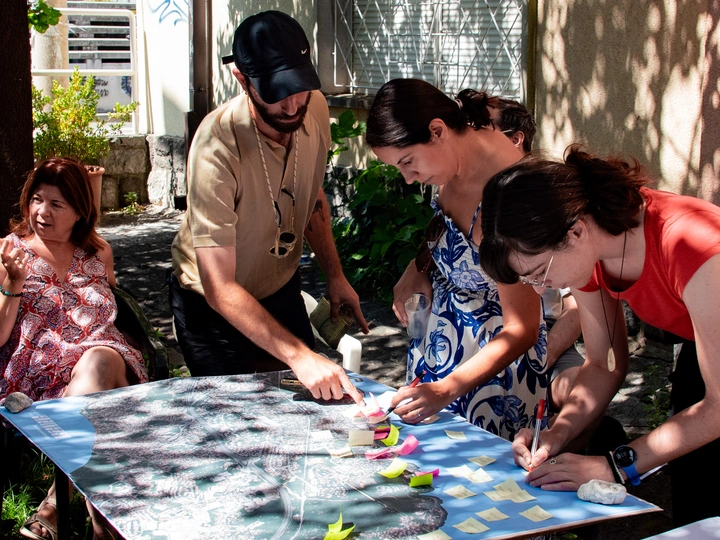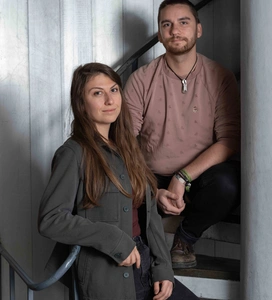School of Participatory Urbanism

Dora Gorenak
Lucia Majica
Vili Rakita
Tea Truta
The collective Društvo i prostor (Society and Space) is an informal organization established in 2024, bringing together experts and activists engaged in issues of spatial (in)justice in Croatia through research, advocacy, and collaborative action. Members of the collective have previously worked in various constellations within both formal and informal initiatives, focusing on participatory practices and critical examinations of spatial realities.
The core team consists of trained and practicing architects and spatial planners Lucia Majica, Mario Peko, Tea Truta, Vili Rakita, Dora Gorenak, and Alma Antončić. We have gained experience through our involvement in the Association of architects from Split and Zagreb , the organization Tatavaka (Island of Zlarin), as collaborators and members of the Right to the city from Zagreb as well as through independent projects. Through these platforms and personal initiatives, we are also connected to wider international networks such as the European Action Coalition for the Right to Housing and the City, INURA (International Network for Urban Research and Action), EASA (European Architecture Students Assembly), EAC (European Action Coalition for the Right to Housing and the City among others. Depending on the topic and context of each project, colleagues from a range of disciplines join our work—building a network of individuals with shared and complementary interests gathered around the collective. Over the past two years, the collective has been engaged in developing projects alongside diverse local initiatives, focusing on establishing participatory planning practices and methods of showcasing the results.
The School of Participatory Urbanism was developed in response to the accelerated spatial transformations taking place in Croatian coastal cities, where most of our projects are situated. These cities are increasingly shaped by tourism-driven spatial programming and capital investment, gradually displacing local communities from the spatial, economic, and social fabric of the city. The spatial legacy of the 20th century—planned neighborhoods with solid infrastructure—is being emptied and repurposed, while peripheral areas expand without basic services.
Through a series of workshops, public walks, and collaborative exercises, the School works with communities to build spatial literacy and enable citizens to proactively engage with their environment. These processes also help us develop methodologies that anchor participatory urbanism in practice.
Among other context-specific activities, the project introduces mapping as a participatory practice linking personal experience with broader structural processes, helping communities articulate their own narratives and alternatives. By layering subjective knowledge, historical memory, and present challenges onto the map, participants reframe the city as a contested and negotiable space—open to reinterpretation and change.
Our proposal focuses on how to effectively translate and present the knowledge gathered through community participation into formats that are both accessible and impactful. Drawing on the insights and perspectives emerging from our workshops, cartography becomes not just a tool of documentation, but a method of collective spatial inquiry—a way of visualizing, analyzing, and communicating the power relations, contradictions, and potentials embedded in urban space. It helps trace the impacts of political decisions, financial flows, and speculative investments on everyday life, while also creating a shared platform for negotiation and imagination among residents, planners, and activists.
